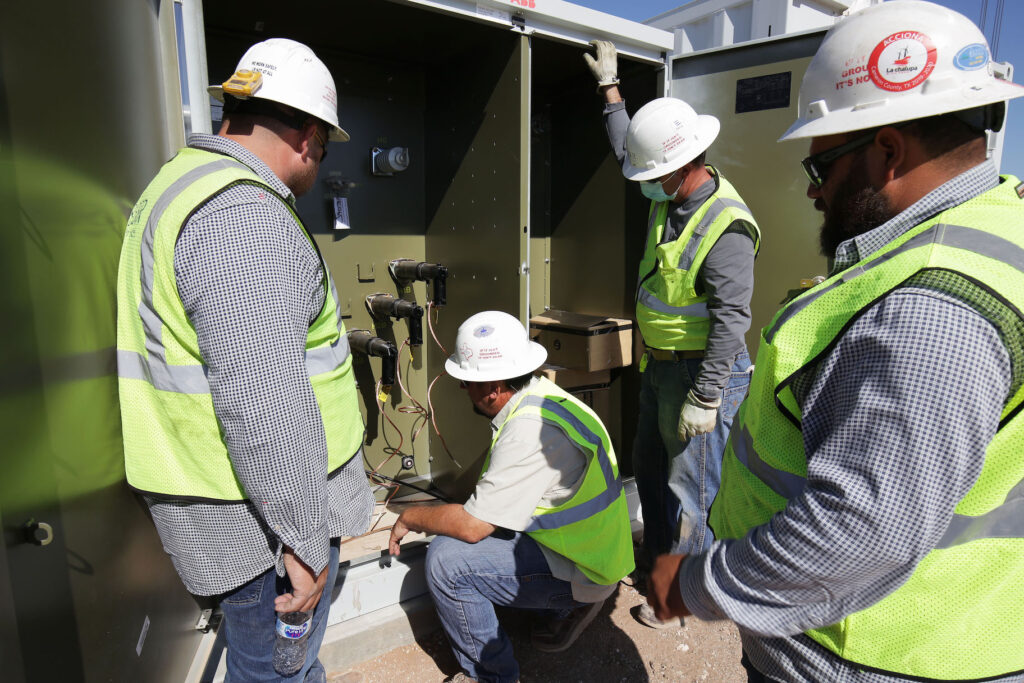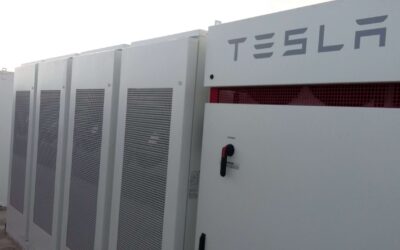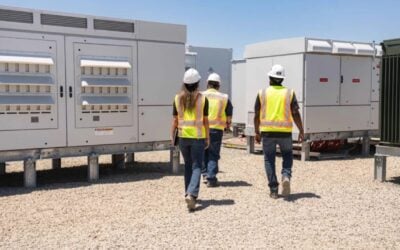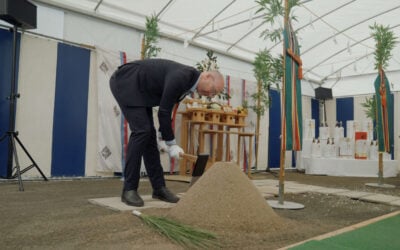
Two 100MW battery energy storage system (BESS) projects in Texas have been brought online by independent power producer (IPP) Broad Reach Power, for participation in the Electricity Reliability Council of Texas (ERCOT) market.
Both transmission-level systems are 100MW / 100MWh each, representing over US$100 million of investment. Located on greenfield sites in Texas’ Mason County and Williamson County, they have the respective project names of North Fork and Bat Cave.
Enjoy 12 months of exclusive analysis
- Regular insight and analysis of the industry’s biggest developments
- In-depth interviews with the industry’s leading figures
- Annual digital subscription to the PV Tech Power journal
- Discounts on Solar Media’s portfolio of events, in-person and virtual
“The demand for new power generation in Texas, including wind and solar generation, is accelerating. Battery storage is a critical component in supplying affordable, clean power, while also enhancing Texas grid reliability,” Broad Reach Power CEO and managing partner Steve Vavrik said.
“Bringing these two projects into service advances Broad Reach’s commitment to developing key energy infrastructure in Texas.”
Broad Reach Power, founded as recently as 2019, first announced the two projects in September 2020. Demonstrating the fast-moving nature of energy storage development in the ERCOT market, the pair were among the largest projects announced in Texas at the time but have since been joined by several others.
Like Key Capture Energy, among the other companies developing BESS portfolios in Texas, Broad Reach Power tested the market’s proverbial waters by building a series of smaller distribution-level projects — 10 separate systems of 10MW / 10MWh each — before embarking quickly on its scale-up.
Broad Reach Power’s build-out continues, and in August this year the company announced it had contracted China-ese manufacturer and system integrator Sungrow to supply 1,000MW of BESS equipment for six Texas projects. The Houston-headquartered IPP said it now owns a 21GW portfolio of solar, wind and energy storage projects spread across five US states, including a move into California with a November 2020 project 25MW / 100MWh development project acqusition, for which it has contracted another Chinese supplier, SYL Battery.
Analysis: What’s up with Texas?
Texas is regarded as one of the hotspots in battery storage in North America today, partly due to it having an installed base of nearly 30GW of wind power and currently installing solar PV faster than any other state.
In a Guest Blog for this site in July, Wayne Muncaster, VP at GridBeyond, a demand response and energy storage services company, pointed out there was around 250MW of energy storage in the ERCOT service area at the time, with 1GW more going online in the summer and a further 2.7GW waiting to connect to the network.
As well as helping to integrate that renewable energy capacity growth and adding grid network flexibility, Muncaster wrote, battery storage also plays an important role in providing resilience against extreme weather conditions, such as those seen during the Winter Storm that hit Texas in February this year. Not least of all because it can help manage the fluctuations in energy pricing seen as a result of that weather.
Interestingly, the majority of new battery storage in California — the US’ other leading state for deployment — is of four-hour duration, whereas in Texas one-hour or two-hour is still by far more common.
This was explained by Andrew Mazze, senior director of infrastructure investment at John Hancock Life Insurance at this year’s Solar and Storage Finance USA conference, hosted online by our publisher Solar Media.
Mazze said that California and Texas — specifically the 80%+ of Texas served by ERCOT — have technological requirements and market structures for standalone battery storage that vary greatly.
California’s market is largely underpinned by long-term contracts with off-takers, often for serving peak capacity to the customers of utilities. This rewards longer duration batteries. In Texas however, the value proposition for batteries is more focused on energy arbitrage with some revenue streams stacked on top from grid services like frequency response.
According to John Hancock’s Andrew Mazze, the first hour of energy arbitrage is the most valuable in ERCOT’s market construct and adding extra hours of storage does not justify the extra capital cost required.
“I don’t need four hours to maximise the value of the battery [in Texas], you can get 90% of the value with much less capital cost, with a one or two-hour battery [system],” he said.
“In CAISO you see four hours being more advantageous due to regulatory benefits, being able to sign RA contracts and dispersion of revenue outcomes across four hours is better, more compressed, so you can get a better return profile for a longer duration battery.”






